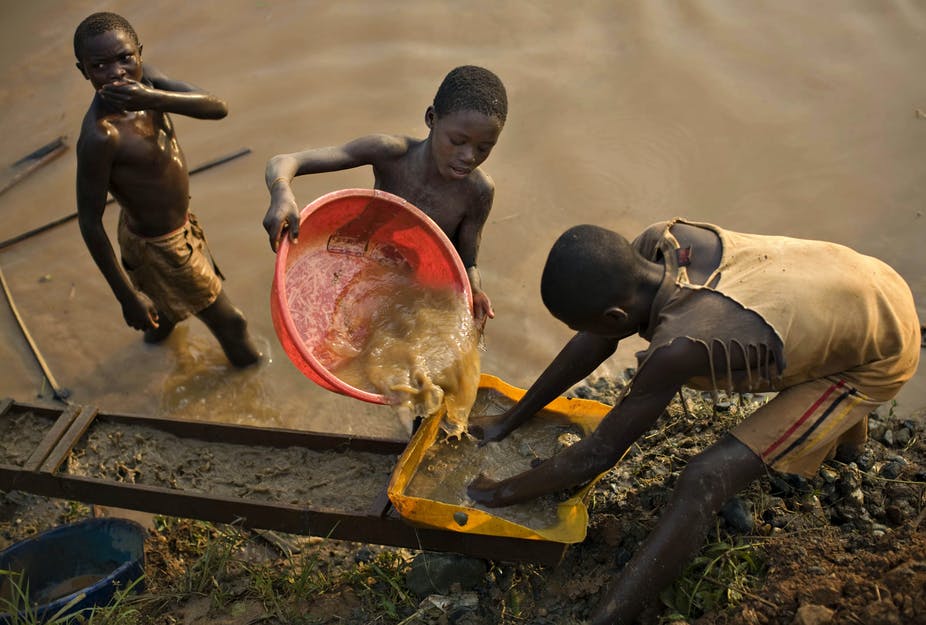On every June 12, International day Against Child Labour and November 20, World Children Day are celebrated and this year 2021 marks the International Year for the Elimination of Child Labour And 21 years when in June 2000, Ghana ratified the International Labour Organisation (ILO) Convention on worst Forms of Child Labour.
Article 32 of the Convention on the Rights of the Child (CRC) 1989, ratified by 191 countries, states that every child (anyone under 18) “has the right to be protected from work that threatens his or her health, education or development”.
The CRC also states that every child has a right to education. The International Labour Organisation (ILO) Convention 182 on the Worst Forms of Child Labour, ratified by 136 countries, prohibits the most extreme forms of child labour that involve children being enslaved, held in bondage, separated from their families, or exposed to serious hazards and illnesses.
This year’s World Day Against Child Labour marked on Saturday, June 12, was on the theme: “Act Now: End Child Labour.”
Children around the world are routinely engaged in paid and unpaid forms of work that are not harmful to them. However, they are classified as child labourers when they are either too young to work, or are involved in hazardous activities that may compromise their physical, mental, social or educational development.
The worst forms of child labour involve children being enslaved, separated from their families, exposed to serious hazards and illnesses and/or left to fend for themselves on the streets of large cities often at a very early age.
These children who engage in various sectors of the economy including commercial, agriculture, fishing, weaving, mining, truck pushing, pottery and illegal mining (galamsey) under all circumstances are supposed to be in the classroom.
In our view, children are the future leaders of Ghana and when those who find themselves in deplorable and needy situations are not well catered for, it will adds on to the already existing problems the nation is battling with.
Over the past 21 years, various partners including mandated government ministries, departments and agencies, Workers’ organization, employers association, NGOs and other civil society groups including the media have implemented a number of interventions which is laudable.
The government of Ghana has passed several laws and signed a number of treaties to guard against exploitative forms of child labour. Article 28 of the 1992 Constitution prohibits labour that is considered injurious to the health, education, or development of the child. Ghana has also signed three key international treaties that ban certain practices of child labour.
The provision in the 1992 Constitution of Ghana on the rights of children, led Government to the creation of Ministry of Manpower, Youth and Employment, Ministry of Women and Children’s Affairs, Department of Children, Social Welfare, Special Police Unit for Child Protection.
Additionally, Ghana has passed its own laws on child labour. This includes the Children’s Act of 1998 and the Labour Act of 2003, both of which address child labour in detail. The Children’s Act bans all exploitative labour and echoes the 1992 Constitution’s prohibition by defining this type of labour as that which denies a child of health, education or development. The Act additionally bans a number of child labour practices that it lists as “hazardous”.
Rounds made by the Newswatcgh.com team through the principals streets of major cities in the country, confirms how some children are neglected by their parents because of either they (parent) are unemployed or financially handicapped.
Some of these children live on the streets because they are probably born there, some of the youth also flee from forced marriages, while others migrate to the urban areas in search of non-existing jobs, hence get impregnated.
Despite the efforts by the current government to have a place in schools for children through its free education policy, some children are reported to have dropped out of school before they could complete their Junior Secondary Education. The Ghanaian child needs to be protected to sustain the future of the nation.
As a result of these, a lot of these children unpalatably are seen in the hot sun selling biscuits, ice water, toilet roll, toffees and other things just to make a living.
Reportedly, the Ministry of Children, Gender and Social Protection, is working on its legal regime in a holistic manner to create the enabling environment especially for children and women.
Newswatcgh.com is therefore happy that the Ministry is strengthening the legal and policy framework to enhance development of the vulnerable and needy especially women and children.
Nevertheless, Ghanaians need not rest on their oars but should be guided by article 28 of the 1992 constitution that “every child has the right to same measure of special care, assistance and maintenance.” This calls for all Ghanaians especially governments, Church leaders, politicians and parents to be submissive to the Children’s Act of 1998, which prohibits anybody to subject children to inhuman treatment.
It is time Political parties and their Presidential Candidates take a critical look at this area of making the life of children a better one as one of its major priorities. Children need to be protected against all acts of violence, abuse, exploitation, discrimination and rape.
However, it should be the joy of Ghanaians that the current government and successive Governments have put in a number of interventions to increase access to basic education including Capitation Grants, School feeding programme, free Textbooks/exercise books, free School uniforms and footwear for needy pupils and the Free Education.
Creating a society fit for the Ghanaian child means all children should get the best possible start of life and have access to quality basic education. They need to be helped to develop their individual capacities in a safe and supportive environment.



